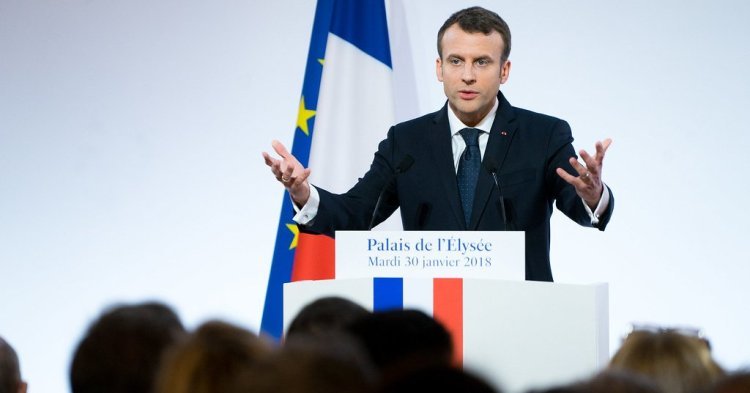Lockdown like in Italy and Spain
After reminding us that all non-essential shops were asked to close last Saturday, as well as kindergartens, schools, high schools and universities, President Macron announced a new phase to fight the coronavirus situation. As from tomorrow at noon and for at least 15 days, restrictions on movement will apply: it will be limited to movement for health reasons, food shopping, work (if no teleworking option is foreseeable), and solo sporting activity. Large gatherings are prohibited (concerts, demonstrations, sporting events etc).
President Macron announced that sanctions would be applied for transgressors, that the French government should develop in a communiqué later.
Such lockdown measures have already been applied in Italy and Spain. Belgium or Greece have also taken similar measures. Several EU countries even decided to close their borders, followed by Spain tonight. The European Commission has also issued recommendations or measures – depending of its competency – that are developed on its dedicated website.
For more information on the different measures taken by the EU’s member states, check Politico’s “How Europe is responding to the coronavirus pandemic”, including a map detailing the number of cases per country.
Political decisions
All reforms currently being implemented in France are postponed to a later stage, including the reform of the pension system which has been causing turmoil, both in the streets and at the National Assembly, for the past 3 months.
The second round of the local elections is also postponed. The first round was maintained yesterday, despite the disapproval of the French Medical Council, and was marked by a higher rate of abstention than for the last European elections (a first in France!).
The welfare state is back
A series of measures was announced to support the medical and hospital system, businesses, workers, and independent stores.
The State will offer financial and material support to hospitals and their staff. A military hospital and the army will be mobilised to reduce public hospitals’ congestion, and to support hospital, medical and nursing personnel. Taxis and hotels will be made available and paid by the State for these personnel, and they will be provided with a dedicated childcare service.
Businesses will benefit from advantages aiming at helping them to get through the crisis, especially an adjournment of taxes, social benefits charges, reimbursement of bank loans, payment of electricity, water or gas bills. “No business will be left to go bankrupt”, President Macron emphasised.
Salaried employees will benefit from an extended short-time work compensation scheme. Independents and entrepreneurs will benefit from a “solidarity fund” funded by the State – and potentially by the regions.
The “most precarious” will not be left behind, the President added.
In parallel, the State’s support to research facilities, and especially those trying to develop a vaccine, continues.
Europe and the world
Following the recommendations, earlier today, of the European Commission’s President Ursula Von Der Leyen, President Macron announced that the European Union’s external borders would be closed for at least 30 days, except for essential services, goods and cross-border workers.
Borders between France and other EU countries should remain open, and so people from other EU countries should still be able to come to France, including French people living in these countries, although President Macron reminded that freedom of movement should be reduced to the minimum and to what is indispensable to tackle the spread of the virus.
French people living abroad – especially outside the EU and the Schengen area – can get in touch with their consulates and embassies would they seek assistance to come back to France.
A call for individual and collective responsibility
Among the announced measures and updates, President Macron called for individual and collective responsibility to face the crisis. “We are at war”, he repeatedly said. He pushed French citizens not to succumb to panic – referring, between the lines, to the scenes we have been witnessing in supermarkets for the past few days. Emmanuel Macron pleaded for “unity”, “solidarity”, “patriotism” and “responsibility” in these difficult times, acknowledging the “heartbreak” of those being separated for their loved ones and the difficulty to drastically change our daily routines.
A personal insight
For the past year and a half, France has been going through waves of social turmoil (yellow vests, demonstrations against the pension system reform), police violence (against citizens, against firemen, against high school students, against women during the Women’s March), distrust in the French government whose reforms have caused concerns and protests in all public sectors (education and health in particular), deep social divisions and more. News from France has frequently left me disheartened, my trust in and hope for our welfare state has been damaged, and my consideration for the French government has been seriously undermine.
But tonight, I have to give Emmanuel Macron some credit. Tonight, I saw a President. I saw a welfare state. I saw France.

Follow the comments: |
|
